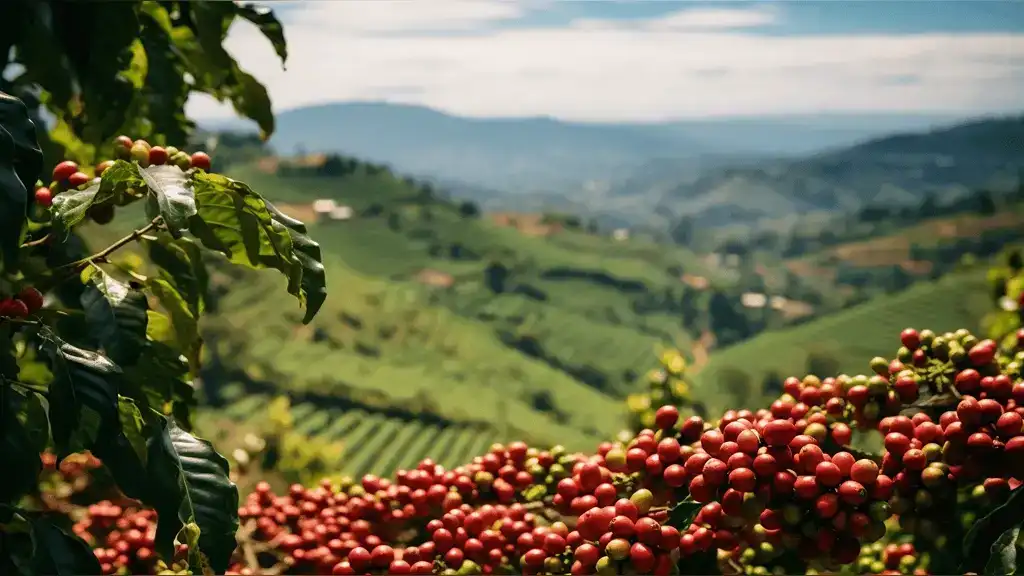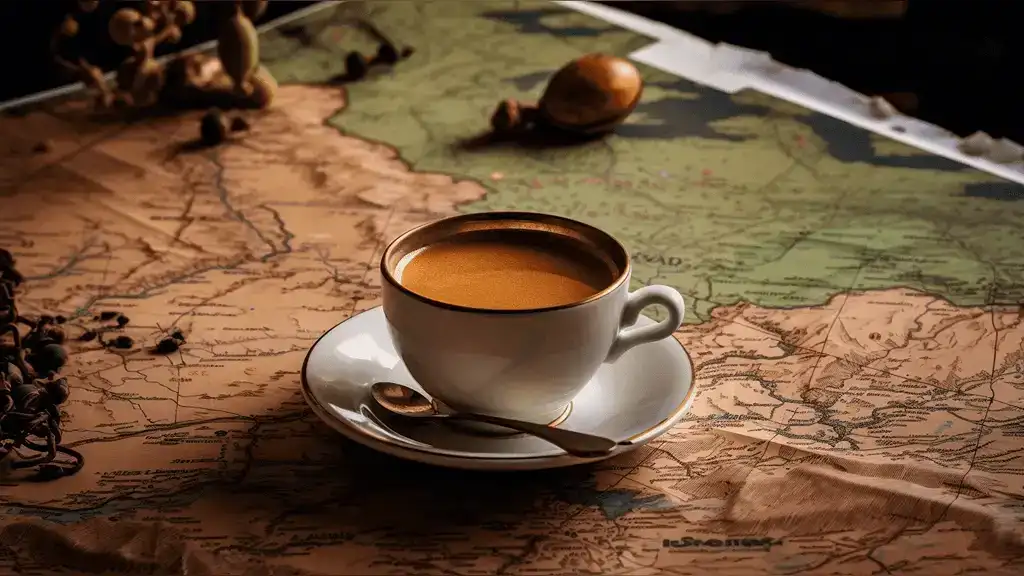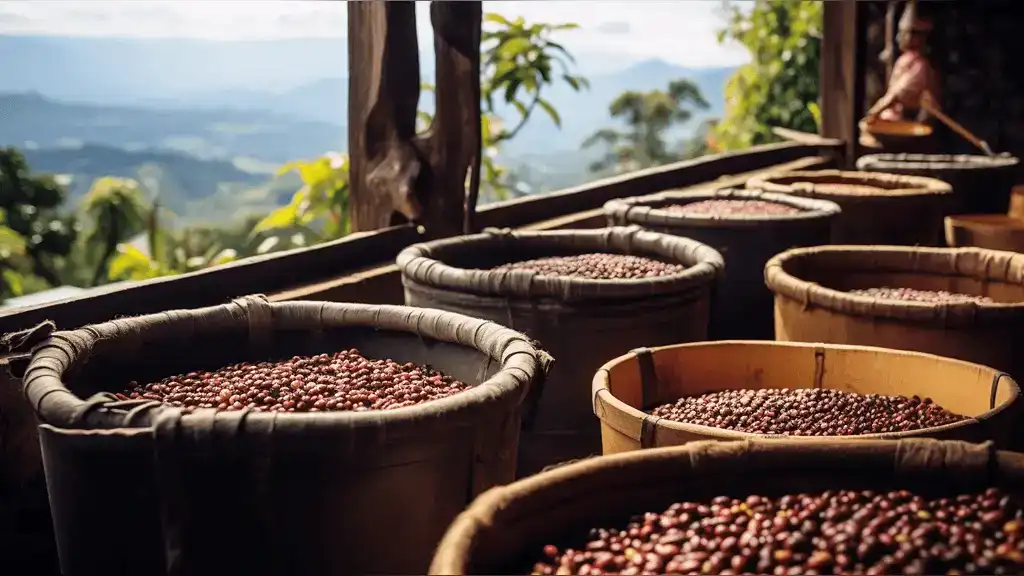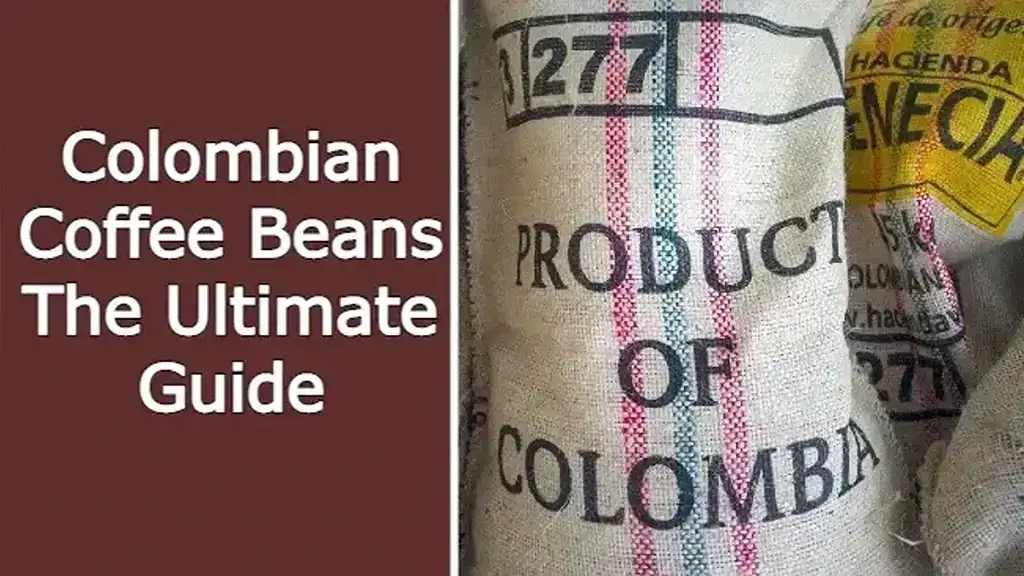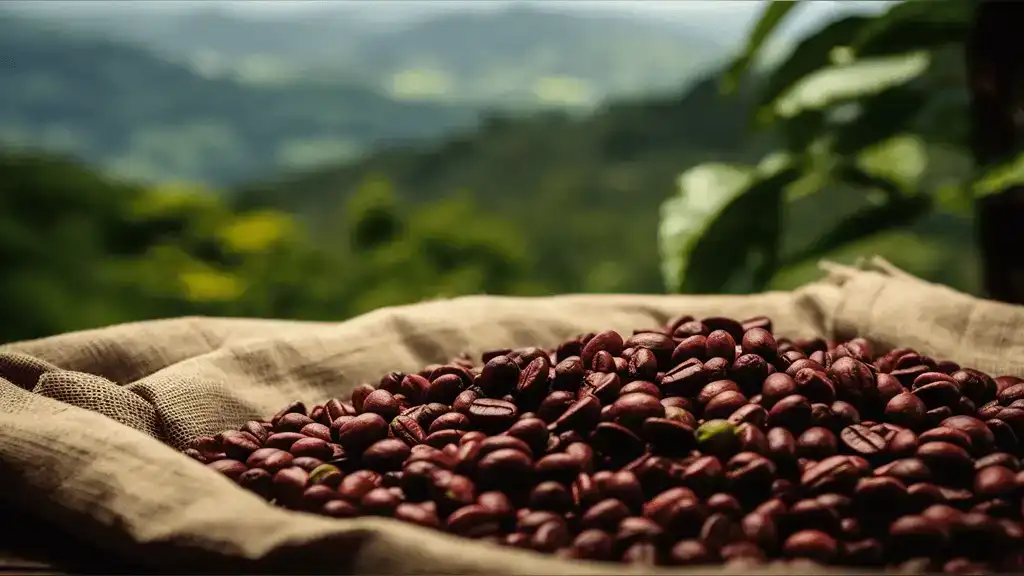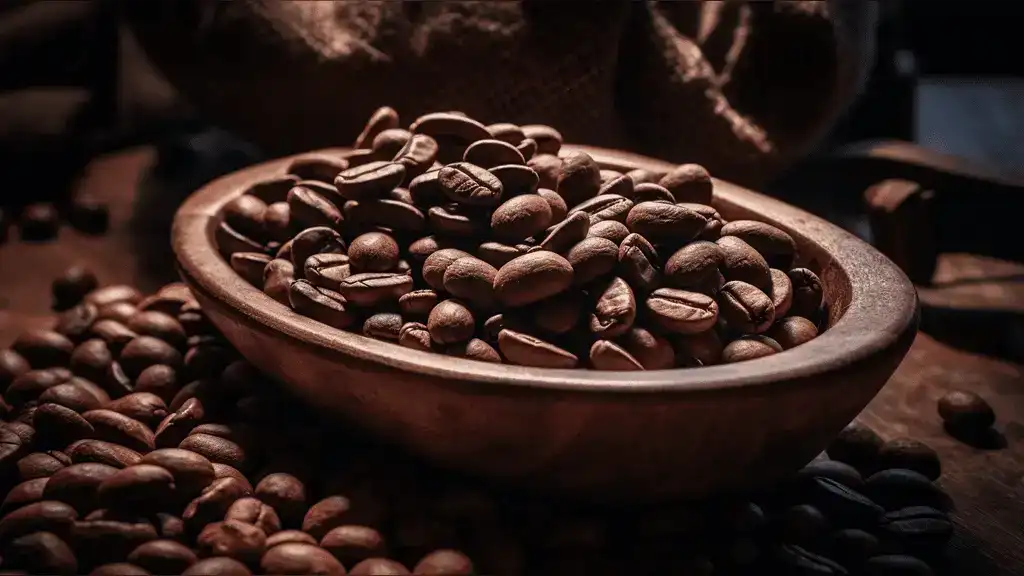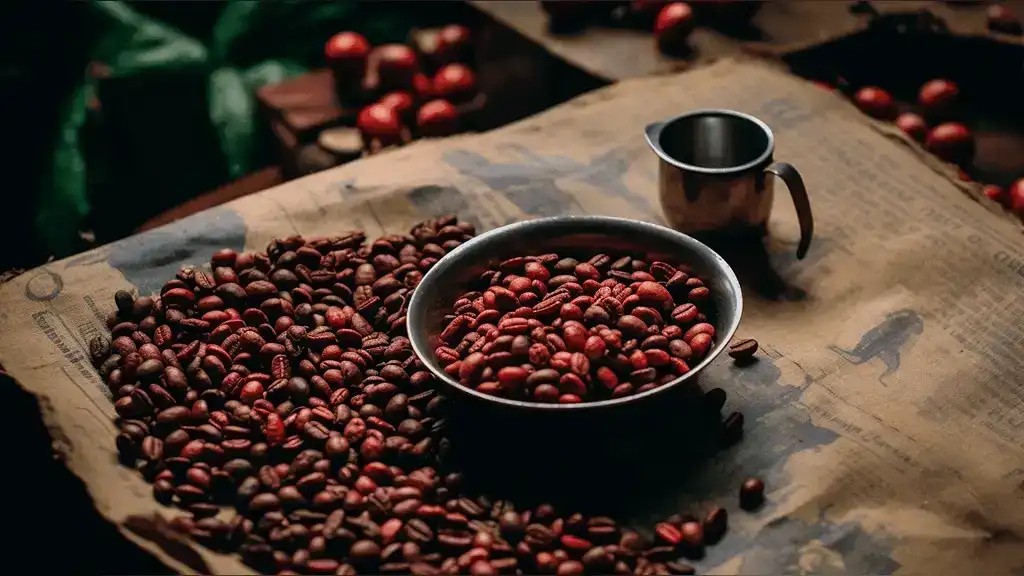Rwanda is a country located in Central Africa, and it is known for its production of high-quality coffee beans. These beans are used to make some of the best coffee in the world.
Rwandan coffee beans are typically medium to dark roast, and they have a rich, bold flavor. Rwandan coffee is often described as being earthy, with notes of chocolate and dark fruit.
Is coffee from Rwanda good?
Rwandan coffee beans are known for their high quality, and they are often used in specialty coffees. Rwanda is a relatively new player in the coffee industry, but its beans have already made a name for themselves.
Rwandan coffee is often described as having a fruity or floral flavor, with a clean finish. The beans are also said to be very well-balanced, with moderate acidity.
Rwanda is an excellent source of coffee for those who want to try something different, and the country’s coffee production is growing rapidly. There are many good reasons to try Rwandan coffee beans, and you may be surprised at how much you like them.
History of Rwandan Coffee:
Rwanda has a long history of coffee production. Rwanda is a landlocked country in central Africa, bordered by Uganda, Tanzania, Burundi, and the Democratic Republic of Congo. The country has a population of around 12 million people and an area of 26,338 square kilometers.
Rwanda is known for its beautiful scenery, including volcanoes, lakes, and mountains. The country is also known for its tragic history, including the Rwandan Genocide of 1994.
When was coffee introduced in Rwanda?
The coffee plant was introduced to Rwanda by German missionaries in the late 19th century. However, it wasn’t until the 1960s that coffee production began to take off in the country.
Coffee quickly became an important crop for Rwanda, and by the 1960s, it was the country’s leading export. Today, Rwanda is one of Africa’s leading producers and exporters of coffee.
Development of Rwandan Coffee Farming:
The Rwandan coffee industry has undergone a period of significant growth and development in recent years. The country’s coffee production has more than doubled since 2000, and Rwanda is now the sixth-largest producer of coffee in Africa.
The Rwandan government has been supportive of the development of the coffee sector, providing financial and technical assistance to smallholder farmers. In addition, the government has created an enabling environment for private-sector investment in the coffee sector.
As a result of these efforts, Rwanda has become an important player in the global coffee market. Rwandan coffee is prized for its high quality, and the country’s specialty coffees fetch premium prices in international markets.
How Rwanda improved Coffee Trade?
In recent years, Rwanda has made great strides in improving its coffee trade. In 2013, the country exported nearly $17 million worth of coffee, up from just $3 million in 2010. This growth is largely due to new initiatives aimed at boosting Rwanda’s coffee industry.
One such initiative is the “Quality Coffee Initiative”, launched by the government in 2012. The initiative provides training and support to coffee farmers, helping them to produce higher-quality beans. As a result of the initiative, Rwanda’s coffee exports have been steadily increasing in quality, fetching higher prices on the international market.
In addition to improving the quality of its coffee, Rwanda has also been working to increase the quantity of coffee it exports. In 2013, the country exported a record-breaking 1,800 metric tons of coffee. This is more than double the amount exported in 2010 and represents a significant increase in Rwanda’s coffee production.
The Rwandan government has also been working to attract foreign investment in the country’s coffee industry. In 2013, the government launched a $5 million investment fund to attract foreign investors in the coffee sector. The fund has been used to finance several new coffee processing plants in Rwanda.
If you’re interested in exploring how other African countries are enhancing their coffee trade, our Kenya Coffee Guide: Varieties & Beans provides a comprehensive overview.
What Coffee Certification does Rwanda have?
Rwanda has three coffee certifications: Rainforest Alliance, Fairtrade, and UTZ and Organic Certification:
- Rainforest Alliance: Coffee farmers who are Rainforest Alliance Certified® follow our comprehensive program that addresses economic, social, and environmental challenges. The program includes standards for farm management, worker rights and welfare, and environmental protection.
- Fairtrade: The international Fairtrade system represents the world’s largest and most recognized fair trade system. Fairtrade offers farmers a better deal and improved terms of trade.
- UTZ: The UTZ program helps farmers produce better crops more efficiently, using fewer inputs. The program provides training and support so farmers can learn good agricultural and business practices. The UTZ program includes standards for farm management, worker rights and welfare, and environmental protection.
- Organic Certification: The organic certification program in Rwanda is managed by the Rwanda Agriculture Board (RAB). The RAB program includes standards for farm management, worker rights and welfare, and environmental protection. Rwanda is also a member of the International Coffee Organization (ICO), which sets standards for the international coffee trade. Rwanda’s coffee certification scheme is important because it helps farmers produce better crops more efficiently, using fewer inputs
How political situation and economics affect coffee in Rwanda?
In recent years, coffee has become an increasingly important commodity in Rwanda. The country is now the second largest producer of coffee in Africa, after Ethiopia. However, the coffee industry in Rwanda is facing significant challenges.
The biggest challenge is the political situation in the country. Rwanda has been embroiled in conflict for many years, and this has harmed the coffee industry.
The conflict has made it difficult for farmers to access their farms, and it has also created insecurity throughout the country. This has led to many farmers abandoning their farms, and production levels have suffered as a result.
In addition to the political situation, the Rwandan economy is also having an impact on the coffee industry. The country’s currency, the Rwandan franc, has been losing value against the US dollar.
This has made it difficult for Rwandan farmers to purchase inputs such as fertilizer and pesticides. As a result, production costs have increased, and farmers have had to sell their coffee at lower prices.
The political situation and economic challenges in Rwanda are hurting the coffee industry. However, some positive developments are taking place.
The government is working to improve the country’s infrastructure, which will make it easier for farmers to access their farms and transport their coffee to the market. In addition, the government is providing financial support to farmers who want to expand their businesses. With these initiatives, it is hoped that the coffee industry in Rwanda will be able to overcome its challenges and continue to grow.
How much coffee is exported from Rwanda?
Rwanda is a relatively small country, but it is one of the world’s leading producers and exporters of coffee. Rwanda exported an average of about 73,000 metric tons of coffee in the years between 2010 and 2014.
This made Rwanda the 29th largest exporter of coffee in the world during that time period. The value of Rwanda’s coffee exports also increased during this time, from an average of $36 million in 2010 to $54 million in 2014.
Rwanda’s coffee is typically exported to countries in Europe and Africa.
Where does Rwanda export coffee?
Rwanda exports coffee to many countries, including:
- The United States
- Germany
- Italy
- Netherlands
- France
- Switzerland
- UK
- Belgium
- Singapore
- And many more…
Rwanda’s coffee is known for its rich flavor and high quality, making it a popular choice among coffee lovers around the world.
Thanks to Rwanda’s commitment to sustainable farming practices, its coffee is also some of the most environmentally friendly on the market.
What does Rwandan coffee taste like?
Rwandan coffee is typically described as having a rich, chocolatey flavor with hints of berry and citrus. Some also say they taste notes of sweet potato and honey.
The coffee beans grown in Rwanda are known for being some of the most balanced and flavorful in the world. Rwandan coffee is often used in blends because of its ability to add depth and complexity to the flavor profile.
However, it can also be enjoyed on its own as a single origin coffee. When brewed correctly, Rwandan coffee is smooth and well-rounded with a slightly nutty finish.
What type of coffee is grown in Rwanda?
Rwanda’s coffee most common type of coffee is Arabica. It is grown at high altitudes on the slopes of the country’s mountains.
The ideal Coffee Belt runs through Central and Southern Rwanda from Lake Kivu in the west to Cyangugu in the south. The best coffee is said to come from the Nyamasheke region in the west near Lake Kivu.
Rwanda is home to several coffee plantations, each of which produces a unique type of coffee. The most common types of coffee grown in Rwanda are Arabica coffee, Robusta coffee, and Liberica coffee.
Immersed in the rich history and flavors of Rwandan coffee? Take a detour and explore the Best Coffee Regions in Tanzania Overview. Experience the diverse coffee landscapes that Tanzania has to offer.
Rwanda Arabica coffee
This type of coffee makes up the majority of Rwanda’s production. Arabica coffee beans are known for their smooth taste and a pleasant aroma.
Three main varieties of Arabica coffee are grown in Rwanda: Bourbon, Caturra, and Catuai.
- Bourbon coffee beans: are light-bodied with delicate acidity and floral aroma.
- Caturra coffee beans: Have a medium body with a nutty flavor.
- Catuai coffee beans: Have a fuller body with chocolate undertones.
The most popular coffee bean in Rwanda is the Bourbon variety. However, Catuai is also grown in some areas of the country.
Rwanda Robusta coffee
Robusta coffee beans are less popular than Arabica beans, but they still make up a significant portion of Rwanda’s production. These beans have a harsher, more bitter taste than Arabica beans.
Rwanda Liberica coffee
Liberica coffee is grown on a very small scale in Rwanda. These beans have a large size and a distinctively fruity flavor.
What are the conditions like for growing coffee in Rwanda?
The climate in Rwanda is perfect for growing coffee with its rich volcanic soils, ample rainfall, and warm temperatures.
The country has two rainy seasons (March-May and September-November) which provide enough moisture for the coffee trees. The higher altitudes also help to protect the coffee
Where coffee is planted in Rwanda?
Coffee is planted on the slopes of volcanoes in Rwanda, at altitudes between 1,500 and 2,000 meters. The volcanic soils are rich in nutrients and help to produce high-quality coffee beans.
What are the different processing methods used for Rwandan coffee?
Rwandan coffee is typically processed using the wet method, where the coffee cherries are pulped and then fermented in water. The coffee beans are then washed and dried before being roasted.
The dry method is also used in some areas of Rwanda. In this method, the coffee cherries are dried in the sun or mechanical dryers before being hulled to remove the outer layer. The beans are then sorted and roasted.
Parchment coffee is also produced in Rwanda. This type of coffee is processed using the same methods as the dry method coffee, but the parchment layer is left on the bean during drying. This results in a more flavorful cup of coffee.
Rwanda vs Burundi Coffee Beans
Rwanda offers a delicious Arabica variety that boasts a clean taste profile, and Burundi’s coffee beans provide unique fruity and floral flavors that you won’t find elsewhere. Explore the wonders of these two countries’ coffee cultures and take your sensory journey to new levels. If you want to know more about Burundi’s amazing coffee facts, check out our article, “Burundi Coffee Beans – Amazing Facts You Should Know.”

